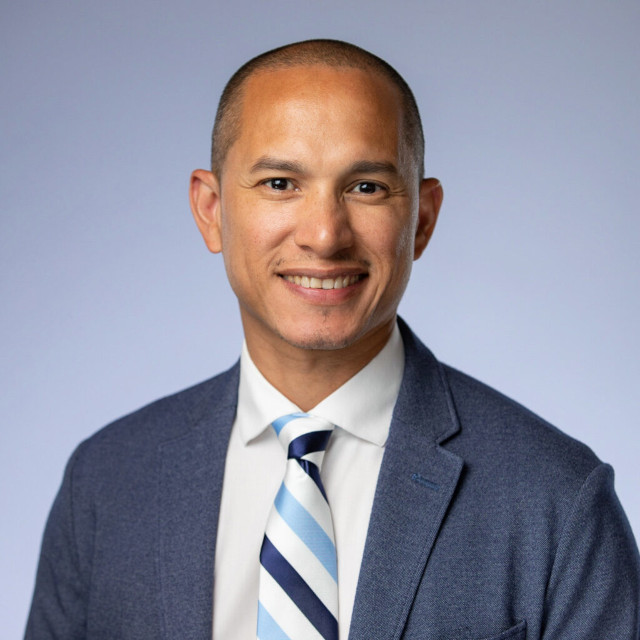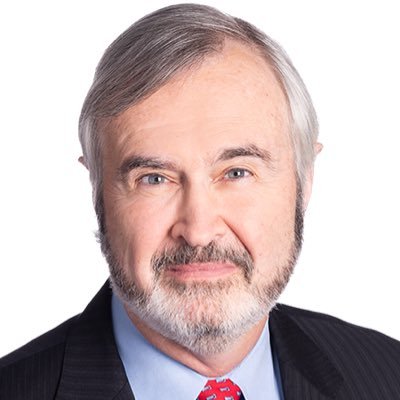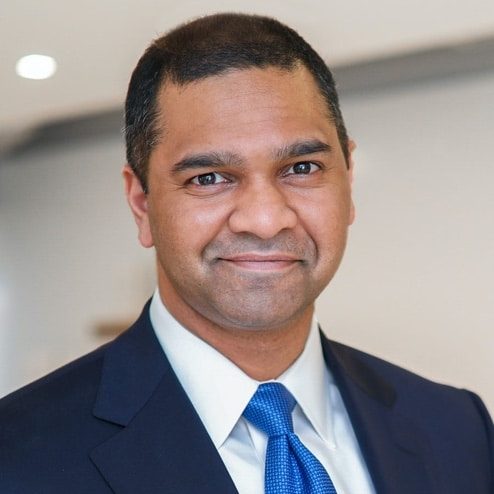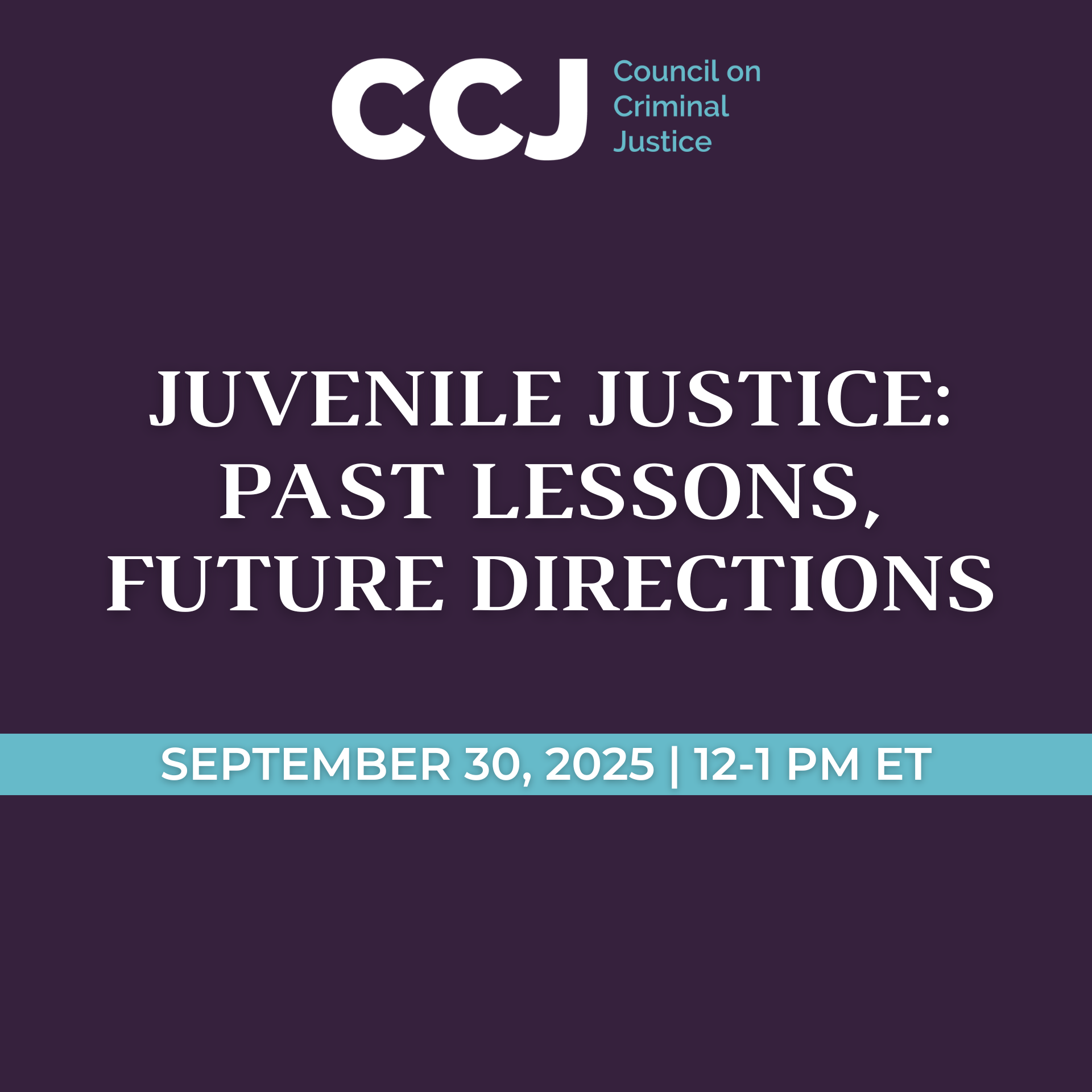On March 25, 2025, leaders of the Council on Criminal Justice Centering Justice initiative – Khalil Cumberbatch and Marc Levin – led a panel of experts in a discussion of the second Trump Administration’s executive orders and other actions related to criminal justice. Topics ranged from the federal death penalty to private prisons, presidential pardons, and police accountability. Panelists included John Malcolm, vice president of the Institute for Constitutional Government at The Heritage Foundation; Lauren-Brooke Eisen, senior director of the Justice Program at The Brennan Center for Justice; and Vikrant Reddy, senior fellow at the Charles Koch Institute.
Highlights from the Conversation
On the Executive Order Restoring the Federal Death Penalty
- JOHN MALCOLM: “[When] Joe Biden came in, there had not been any federal executions carried out from 2003 until the July before President Trump left office. There were 13 that were carried out in the last six months. The moment Joe Biden came into office, he said he was going to study the issue, which was a ruse. There was no studying going on. And for four years, they did nothing with the death penalty. Then in December, after … Kamala Harris, his would-be successor, had lost the election, he commuted the sentences of 37 of the 40 people on federal death row. And then five days literally before President Trump took the oath of office, [Attorney General] Merrick Garland rescinded the death penalty protocol used by the Department of Justice. I would contend that those were quite abusive actions and now President Trump and Attorney General Bondi are going to seek to reverse that.”
- VIKRANT REDDY: “The number of federal inmates relative to the number of people in state prisons is very, very small. And then within that very, very small number of people, the number of federal inmates on death row is itself incredibly small … Now, regardless of how extraordinary a crime is, there are very strong moral reasons, and I would even say [reasons related to] political science … to oppose the death penalty … I’m not trying to downplay the gravity of the death penalty as a moral issue. But just as a numerical issue, the number of people affected is very, very small.”
“Now a person may come back and say, ‘Well, Vikrant, there’s that one thing, but what about the fact that President Trump is trying to use this executive order to encourage state attorneys general to pursue the death penalty more aggressively?’ … In places like Texas where that’s already being done, I’m not sure it has much of an effect. And in places like California where that’s not being done … it’s not going to have too much of an impact. It’s really only at the margins … Another part of the executive order is to pursue the death penalty more aggressively, I think, in immigration criminal cases, and then in cases where law enforcement officers have been killed. I’m sure they will pursue the death penalty more aggressively in those cases, but those death penalty cases will take years and years to work their way through the system, probably longer than Donald Trump will be president. I think it’s very, very likely just because of the thermostatic nature of American politics, that the next president is a Democrat who then goes and commutes those sentences … I guess my bottom line is that these are serious issues at a moral level, and in the way we think about our system of governments, but … they don’t have as much of a practical impact as we might think at first blush.”
- JM: “One thing that this [executive order] does do is it directs the Attorney General to do everything that she can to make sure that those states that still want to impose the death penalty have all the drugs that they need to carry out lethal injections. And in terms of federal enforcement of the death penalty … it directs the Attorney General to pursue the death penalty ‘for all crimes of a severity demanding its use.’ … It also directs the Attorney General to pursue the death penalty, regardless of other factors, for the murder of a law enforcement person—that would obviously have to be a federal official or somebody on federal land—or a murder committed by an illegal immigrant. So certainly, if the Department of Justice follows through on this, as I expect they will, they are going to have a lot more capital-eligible offenses.”
On Staffing Challenges and Other Issues at the Bureau of Prisons
- LAUREN BROOKE-EISEN: “One of the cuts that the administration made was to eliminate the retention increases and incentive bonuses for more than 20,000 federal correctional officers, which we all know will exacerbate staffing shortages and will make working conditions less safe in federal prisons. It’s important to understand that this comes after years of chronic staffing shortages that have already negatively impacted federal prisons across the country, including the successful implementation of the First Step Act, which President Trump signed and championed in his first administration. In fact, current staffing shortages have already slowed the First Step Act’s implementation, leaving incarcerated people in federal prisons across the country without the necessary programming they need to earn early release from prison.”
- JM: “The Bureau of Prisons is a mess. It has had deep difficulties on a whole host of issues, including implementing the First Step Act, which I think everybody on this call supported. If you’re going to get a new Bureau of Prisons head, there certainly needs to be a step up in the quality of the staff. And I think that may also be one of the reasons why the order was rescinded to prevent government from contracting with private prisons. There are some private prisons that are, I’m sure, not very good, that have solely focused on the profit motive, but then again, they have standards in order to meet these contract requirements, and you can gauge whether or not they meet those standards, and if they don’t, you can pull their contracts. The Federal Bureau of Prisons has lots of problems, too. They are not necessarily held to high standards, and you can’t exactly yank their contracts if they are underperforming. Certainly, the grant-making process in the Bureau of Prisons is something that this administration is going to take a long and hard look at, or at least they should.”
On the Reversal of Biden's Executive Order Eliminating DOJ Contracts with Private Prisons
- VR: “I will say the private prisons conversation has always frustrated me because the implication underlying it seems to be that, well, as long as we didn’t have the profit motive underlying incarceration, things would be so much better and we’d have less incarceration. And I’m just not sure that’s true. There are a lot of examples, but the most prominent one … is the three strikes and you’re out law that was passed in California back in the 1990s. If you go back and look at the records in Sacramento, [to see] who was lobbying fervently in favor of this law that did ratchet up incarceration, it was the public sector prison guard unions. Because the unions had an interest, obviously, in increasing the amount of incarceration …
“The theory makes sense, that you build the private prisons, they have a profit motive and therefore you get more and more incarceration. But the reality is that we started passing a lot of very, very aggressive criminal laws. We started incarcerating more and more and then states, because they were becoming overburdened, began contracting incarceration out and then you got a lot more private prisons. None of this is to say that I’m really enthusiastic about private prisons … I guess it’s just to say that incarceration is a tough business, a necessary business at a certain point, but no matter who’s doing it, that entity—public sector unions, the private sector—they’re going to have an interest in incarcerating more and that’s an enormous challenge. I don’t think you can just get around it by saying, ‘Well, we’re not going to use private facilities anymore.’” - LBE: “I’ve written a book on private prisons … and the finding of the research that I’ve done is that private prisons did not, of course, create over-incarceration. These were policy choices that we as a country made at a time of rising crime to over-incarcerate, to create, to [Vikrant’s] point, three strikes laws. So, in the ‘90s, there were a lot of stakeholders, policymakers, correctional unions at the time who had an interest in increasing prison populations. And so, the argument that I made in my book is that no one can turn to the firms that manage prison populations and say that they created this over-incarceration crisis in our country. The research … indicates that the prison buildup was made easier because there was a place to put additional people who could be sentenced, who were sentenced to prison, and these firms didn’t sit idly by. They did build these prisons and work with states and the federal government to serve as government contractors to manage the overage of the prison population that this country was dealing with …
“And whether you’re talking about a private prison or a public prison, we need to improve the accountability and transparency for these facilities, and private prisons are not subject to all of the same open records requests that government facilities are subject to, and they can redact certain trade secrets … What’s really important is that we all … care about improving our prisons, creating more humane prisons where people have more opportunity, where correctional officers feel that they are treated better, are not working double shifts, triple shifts, whether you’re in a private prison or a public prison … Whether you’re running a private prison or a public prison, there’s just more work that we need to do to improve transparency, accountability, improve the conditions of the thousands of people who are behind bars in this country.”
- JM: “If you believe that we truly have an over-incarceration problem, then you’re right: If you build a private facility, then you have a place to put them. Your alternative would be to let them out on the streets. I push back on whether we have an over-incarceration problem, but that’s a topic for another day. And I certainly think that we would be better off taking some of these people and putting them in a private prison rather than releasing them into the community, where they can continue to commit crimes.
“Setting all of that aside, I agree with [Lauren] that we all want to have better prisons. And I agree that there’s probably inadequate oversight of both public prisons and private prisons. At least, though, with a private prison it’s a contract and you can establish standards and you can measure those standards and you can terminate a contract if somebody does not live up to those standards. Granted, you have to care enough to look to see whether those standards are being complied with, but they’re there. The Bureau of Prisons only has constitutional standards and relies on lawsuits, often pro se lawsuits, by prisoners who are harmed because their constitutional rights are being violated in prison. And there is far less oversight over what happens at the Bureau of Prisons than what happens in private prisons. I think it is undoubtedly the case that there are some very, very bad private prisons and there are some very, very model private prisons. And there are some very, very bad federal correctional institutions and some very model private correctional institutions. But at least you have the ability to take action against a private prison that you don’t against a public prison.”
On Over-Criminalization and Vague Laws that Invite Improper Applications
- LBE: “Criminal justice reform has had this rare bipartisan engagement across ideological perspectives, and over-criminalization is something that I think all of us on this call believe needs to be addressed … We know that the president’s Tweets about sending U.S. citizens who violated criminal statutes to El Salvador is illegal. It violates both the First Step Act 500, being housed within 500 driving miles of one’s place of residence, and it violates the Eighth Amendment of the U.S. Constitution, that you cannot subject people to cruel and unusual punishment. So that’s been something that is certainly concerning, any suggestion that U.S. citizens can be sent out of the U.S. to a country that is under human rights investigations about terrible conditions of confinement or significant numbers of people have died in those prisons. But to get back to the point about criminalization, we have too many criminal laws in this country … that has also played a role in what I would call—I know John disagrees with me—over-incarceration in this country … The Brennan Center has published research finding that significant amounts of people in our prisons today really don’t need to be there when it comes to any sort of public safety rationale.”
- JM: “U.S. citizens have not been deported to El Salvador. It’s people who are here in this country illegally. I agree with you that if you were deporting U.S. citizens or sending U.S. citizens to El Salvador, that would present a whole host of other issues. We might very well disagree about whether we have an over-incarceration problem. I think we would be in radical agreement that there are a lot of laws that are very, very vague and confusing, in some cases conflicting, and any time you have a vague criminal law, that has at least the potential for abuse by a state or federal prosecutor. And depending on who’s complaining about it, I suppose depends to some extent on whose ox is being gored. So, at the moment, people on the left will complain about the application of vague criminal laws in the same way that people on the right, for instance, objected to all of the J6ers—I’m not excusing what it is that they did—for being prosecuted for seditious conspiracy. And another example of what I would say was overcharging. But vague laws, vague criminal laws where the consequences are severe can be abused and for all sorts of purposes, either because somebody wants to make a reputation for themselves and is just overly zealous or some political prosecutor is out to make a name for him or herself.”
- VR: “When DOGE [the Department of Government Efficiency] was first announced, my understanding is there were two basic visions for what it could do. They’re not inconsistent with each other. But vision number one was that you kind of go through the federal bureaucracy, and you find the laws that are excessive, or excessively harsh, or duplicative and you identify them and you just try to get rid of that stuff as best you can. And the other possibility was just to get head counts down in the federal government. I think I would have much preferred if DOGE took option one rather than option two. And I think that would have done a lot more to resolve some of the naughtiest problems we have in the federal government … A lot of the laws are unnecessary, and a lot of them carry unnecessary criminal penalties.”
On Other Criminal Justice-Related Actions the Administration May Take
- JM: “I think in some respects the president is already reaching out to law enforcement. Obviously, law enforcement was stung I think a little bit when he pardoned literally all of the January 6th people, including people who had assaulted federal officers. But he’s also made it very, very clear that they’re going to be focusing on violent crime. And for instance, rescinding the executive order that imposed all of this reporting and implicit bias training, and just expressed extreme mistrust in law enforcement … Clearly, he’s sending a message to the federal government that they’re supposed to cooperate with local officials as much as possible to combat violent crime. He is certainly encouraging every agency to help states deal with some of the illegal immigrants who are Tren de Aragua members or other gang members, or the fentanyl problem, and I think that local law enforcement—many of whom resist the sanctuary policies politicians have put in place—have been begging for that kind of cooperation and they’re getting it.”
- VR: “Rather than make predictions, what I’d like to do is maybe offer some recommendations for how I’d like people on this call to act moving forward, because I know that a lot of people in the criminal justice advocacy space are on this call right now. And what I would like is for everyone to understand that there are limited resources in terms of money and in terms of time, and which, like I said, at the very outset, with some of these executive actions, the practical effect is very, very small. But there are things out there that can have a very, very big impact that maybe seem less exciting or interesting in the public conversation, but they’re profoundly important. And the people on this call are perfectly situated to identify what those kinds of things are. And then to try and elevate those issues within the federal government. And you might say, well, who’s going to pay any attention to me? You’d be surprised, a lot of people, because this administration, or at least the individual at the very, very top of this administration, is less ideological on some issues than a lot of presidents tend to be. It’s a … relationship-based White House at the very, very top.”
“For example, somebody like Alice Johnson … I don’t know [what she’ll be able to achieve], but what I know is that she has a great relationship with the President of the United States. They genuinely have sincere affection for each other. And so it means that Alice Johnson is going to have a lot of power. So you find people like that, that you trust and admire, who have a good relationship with the president, and you might be surprised what kinds of ideas you can actually get a fair hearing for in the Oval Office. I’m almost stunned I’m saying this, but I’ve just kind of watched the way this works a little bit. I mean, I think the First Step Act actually was maybe the quintessential example of this. And if you’re willing to make these connections and have these conversations, we might actually be able to achieve some great things.”
- LBE: “I just hope that this bipartisan support for criminal justice reform continues and that that alliance doesn’t fray. I know a lot of us have a glimmer of hope that there might be some room in this administration for an expansive second chance agenda given the history of the First Step Act. Attorney General Bondi seemed open to changing sentencing laws to address the crack cocaine disparity during her confirmation hearing. And I know with Alice Johnson that there’s another glimmer of hope that there are people working with this administration to try to keep criminal justice reform alive. I know that there is hope from a lot of advocates and policymakers and people who work on this topic in this field that, you know, we’re all hopeful that the administration will support bipartisan criminal justice bills moving forward. Certainly, it would be wonderful to see a Second Step Act and a focus on First Step Act implementation.”
On Possible Shifts in Funding Priorities
- JM: “I think that there’s going to be more funding for organizations that are really viewed as helping law enforcement and less on social policies. But that’s painting with a very, very broad brush.”
- VR: “It seems pretty likely that the funding will go towards law enforcement and those groups that are viewed as friends of law enforcement. So I think for people on this call who are concerned that maybe law enforcement is being used to handle too many problems in American life, and there are people on both the left and the right who feel that way, I think you want to try and frame some of these organizations that are doing drug interdiction and helping people with mental illness, homelessness issues, those groups do not need to be thought of as adversarial to what police officers are doing. If the system is operating properly, and hopefully they’re helping and amplifying what police officers are doing, I think you should try to build relationships between those groups and police officers. And, you know, to the extent that funding can go there in a way that makes these groups not a headache for the cops, but an actual kind of value add, I think that’s probably the outcome that everybody wants to see.”
- LBE: “It’s still early and it’s not clear what the larger public safety and law enforcement strategy of this administration is. There are a couple of things that are very troubling. One is this pause in federal grants. As everyone listening knows, [the Office of Management and Budget] has directed the executive branch departments and agencies to temporarily halt the disbursement of grants by federal agencies. More than 2,600 programs were named for review by OMB. Many of these are focused on improving public safety, and that’s really key for people to understand. There are too many programs to name … but a couple of really critical ones are the community-based violence intervention programs, crime victim assistance programs, grants to reduce domestic violence and sexual assault on campus, and then the Edward Byrne Memorial Justice Assistance Grant Programs … that go or disperse to communities all across the country. These are very worrisome.”
- JM: “I don’t disagree with [Lauren] that there will be some impact of the pause. It’s not a cessation necessarily, but a pause in grant making. But the Justice Department’s grant making process has been problematic. There’s a history of sort of funding left-wing groups that may have an agenda that varies from this administration, but totally setting that aside, there’s also been a real question about accountability. A lot of these grant requests have massive overhead built in. There is really no accounting for how the money got spent or whether all of the money got spent; it was just sort of rubber- stamped every year these organizations would come in for grants. And I think that a pause to at least look at that is worth doing.”
Closing Thoughts
- JM: “Criminal justice, and I’ll include in that illegal immigration and crimes being committed by many of, not all by any means, but many of the people who have ventured onto our shores illegally, was front and center in the election. All of the allegations against Donald Trump were all well known. How Joe Biden ran the Justice Department was all well known. The voters made a clear choice … The social experimentation in terms of new enforcement efforts is now underway and I hope it works out well. Our criminal justice system certainly has its flaws and can be improved. and I certainly hope that this administration takes some steps in doing that.”
- VR: “I’ve definitely sounded a little mild and restrained in this conversation today, saying, ‘Oh, you know, don’t worry, it’s not going to be as awful as some people may think.’ And I do believe that in the specifics. But the one area where I’ll be critical at the end here is just, I’m not a fan of this government by executive action and executive order in general. It’s been happening a lot in many, many administrations over my lifetime. It’s ratcheted up in dramatic ways recently. I don’t think that’s any way to run a railroad. The more you can take these things to Congress and really do it the old ‘how- a-bill-becomes-a-law Schoolhouse Rock’ fashion, the healthier a system we’re going to have. And I do think that all of these executive orders have a kind of a corrosive effect on our civic understanding. I’d like to see less of that. But in terms of the immediate practical effects on our federal criminal justice system, I do still think that they’ll be small.”
- LBE: “Criminal justice reform has been part of an unusual cross-ideological and bipartisan alliance for decades now. This ratchet of punitiveness is very concerning. The executive order on the death penalty orders the Attorney General to evaluate and ensure the conditions of all 37 men who received capital commutations from President Biden are consistent with the monstrosity of their crimes and the threats they pose. That is so troubling. We haven’t really unpacked that yet. We don’t have time. But in the U.S., punishment itself is the restriction of liberty. It’s not a condition of confinement. That’s not punishment. And it goes to the inhumanity and needless cruelty of that order and flies in the face of the U.S. Constitution. So, I won’t say hopeful. I will say, you know, we all really do need to work together and continue to work across ideological divides because we all deeply care about the humanity of those in our prison system, of our communities, and we have a lot of work to do to ensure that our nation’s justice system lives up to the American ideals of equality, fairness, and redemption.”
- Marc Levin: “I think all of us have much in common, including … a reverence for our Constitution … And of course, there are reasons for executive actions—foreign military conflict … emergencies where there is not time for Congress to act. But we always have to think about what if the shoe was on the other foot? And obviously, we saw issues with President Biden where the Supreme Court found that the student loan executive action was unconstitutional and now we have things in terms of like birthright citizenship, right, that that there’s a statute on that even beyond the Supreme Court ruling. From my standpoint it’s important that all three branches of government at least make an effort to uphold the Constitution and have a good safe belief that whatever they’re doing is constitutional, instead of always having to rely only on the courts. They have their limitations in terms of timing and the ability of courts to enforce their judgments in some instances. That’s a critical thing for Congress, which in some ways has abdicated some of its constitutional authority over the years.”
About the Centering Justice Initiative
The Centering Justice initiative is a collaborative project engaging a diverse range of the nation’s top thinkers and doers in an ongoing, ideologically vibrant conversation about criminal justice policy.

MarcLevin

KhalilCumberbatch
Additional Resources
To join the Centering Justice email list, please click here.







